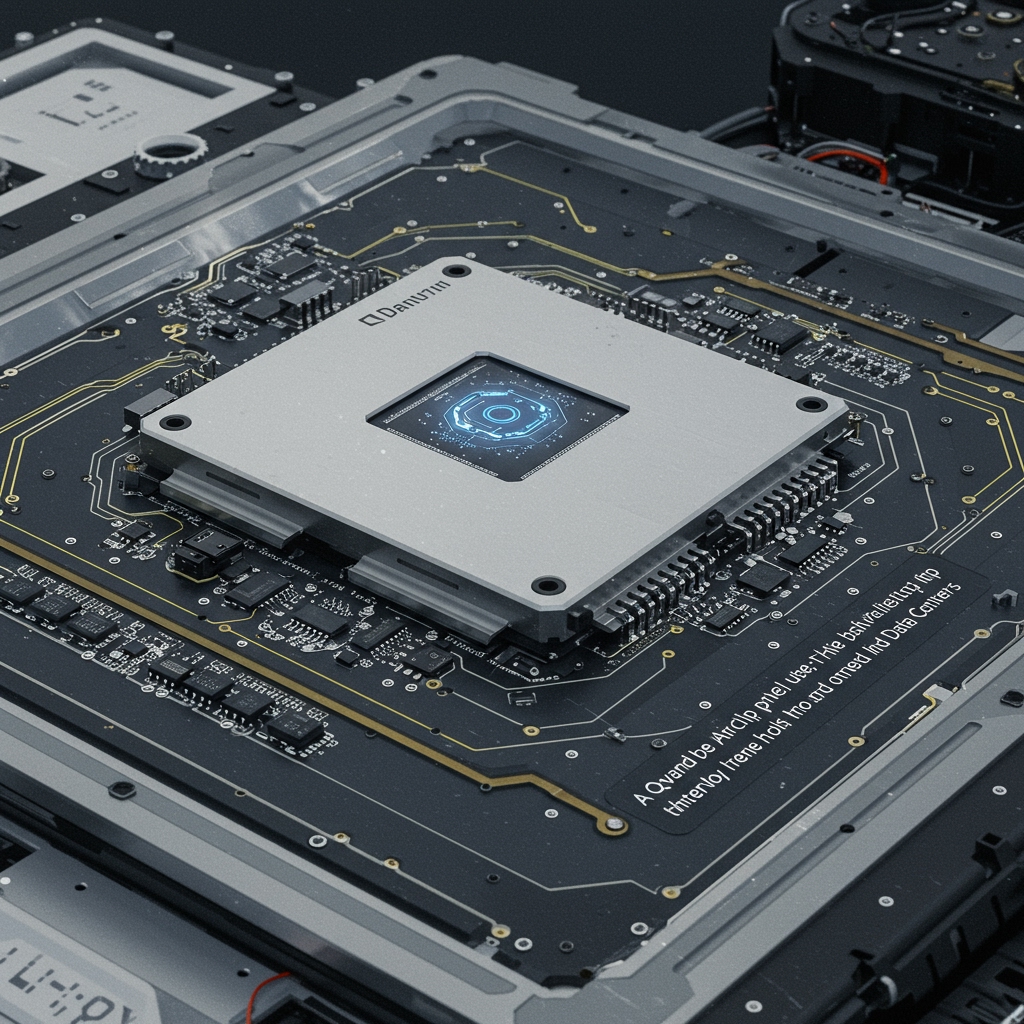Quantum AI Labs Introduces ‘Orion’ Chip, Targeting Major AI Efficiency Gains
Palo Alto, CA – Quantum AI Labs (QAL) today announced the development of its groundbreaking new processor, codenamed “Orion.” Designed explicitly to address the escalating computational and energy demands of advanced artificial intelligence workloads, including large language models (LLMs), the Orion chip promises a significant leap in efficiency that could redefine the landscape of AI hardware.
The announcement comes at a critical juncture for the AI industry. As LLMs and other complex AI applications become more sophisticated and ubiquitous, the infrastructure required to train and run them is consuming vast amounts of processing power and energy. This growing demand has placed unprecedented strain on data centers globally and driven intense competition among hardware manufacturers.
QAL held a demonstration event at their Palo Alto headquarters on May 15th, providing select media and industry analysts a first look at the Orion technology in action. During this demonstration, QAL engineers showcased a functional prototype of the Orion processor. The company reported that the prototype achieved a remarkable efficiency improvement, specifically demonstrating a 98x performance-per-watt advantage over current leading GPUs when running specific inference workloads. While the headline figure promoted by QAL for the chip’s potential across various tasks is up to a 100x efficiency improvement, the demonstration focused on this specific, key benchmark relevant to deploying trained AI models.
The Technology Behind ‘Orion’ and its Potential Impact
Details about the core architecture of the Orion chip remain somewhat proprietary, though QAL representatives hinted that its design leverages novel approaches to data processing and memory management specifically optimized for the tensor operations fundamental to neural networks. Unlike traditional general-purpose GPUs that have been adapted for AI, the Orion appears to be a purpose-built accelerator aiming to drastically reduce the energy and time required for both AI training and, particularly, inference tasks at scale.
The 98x efficiency improvement demonstrated for inference workloads is particularly significant. Inference – the process of using a trained AI model to make predictions or generate output – constitutes a massive portion of the computational cost in deploying AI applications. Reducing this cost by orders of magnitude would enable companies to run more complex models, handle higher volumes of user requests, or drastically cut operational expenses associated with power consumption and cooling in data centers. This could democratize access to advanced AI capabilities by lowering the barrier to deployment.
Market Context and Competitive Landscape
The current AI hardware market is heavily dominated by a few key players, notably Nvidia and AMD, whose GPUs and increasingly specialized accelerators power the majority of AI development and deployment worldwide. Nvidia, in particular, has established a strong ecosystem around its CUDA platform, creating high barriers to entry for competitors.
QAL’s entry with a claim of 100x efficiency represents a potential disruption to this established order. Such a dramatic improvement, if realized at scale and across a range of AI tasks, could force incumbent players to accelerate their own innovation cycles or risk losing market share, particularly in cost-sensitive enterprise data center environments.
However, bringing a new hardware platform to market is a complex undertaking. It requires not only a high-performing chip but also robust software tools, developer support, and manufacturing capabilities. QAL’s timeline suggests they are navigating these challenges, with initial steps focused on getting the technology into the hands of developers and early adopters.
Timeline for Deployment and Future Outlook
Quantum AI Labs has outlined a clear roadmap for the commercialization of the Orion chip. The company plans to begin shipping initial development kits to select partners and customers in Q4 2025. These kits will allow developers to begin porting and optimizing their AI models and applications for the Orion architecture, a critical step in building an ecosystem around the new hardware.
Following the development kit phase, QAL is targeting a full commercial rollout of Orion for enterprise data centers by early 2026. This timeline positions Orion to potentially become a viable alternative for organizations looking to build or upgrade their AI infrastructure within the next few years.
The success of Orion will depend on several factors: Can QAL scale production effectively? Will the real-world performance match the prototype’s demonstration across a broader range of AI tasks? Can they build a software ecosystem that allows developers to easily transition from existing platforms? Despite these challenges, the potential efficiency gains claimed by QAL are significant enough to capture the industry’s attention and signal a potential shift in the ongoing race for AI compute power.
The announcement of the Orion chip marks a bold step by Quantum AI Labs, challenging the status quo with the promise of dramatically more efficient AI processing, potentially ushering in a new era for large-scale AI deployment in data centers worldwide starting in 2026.





